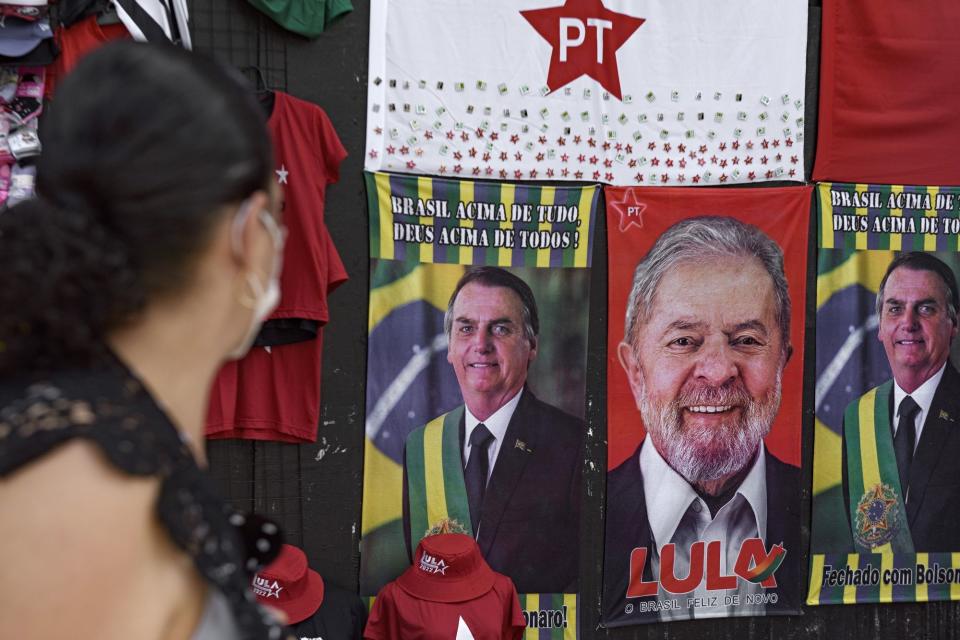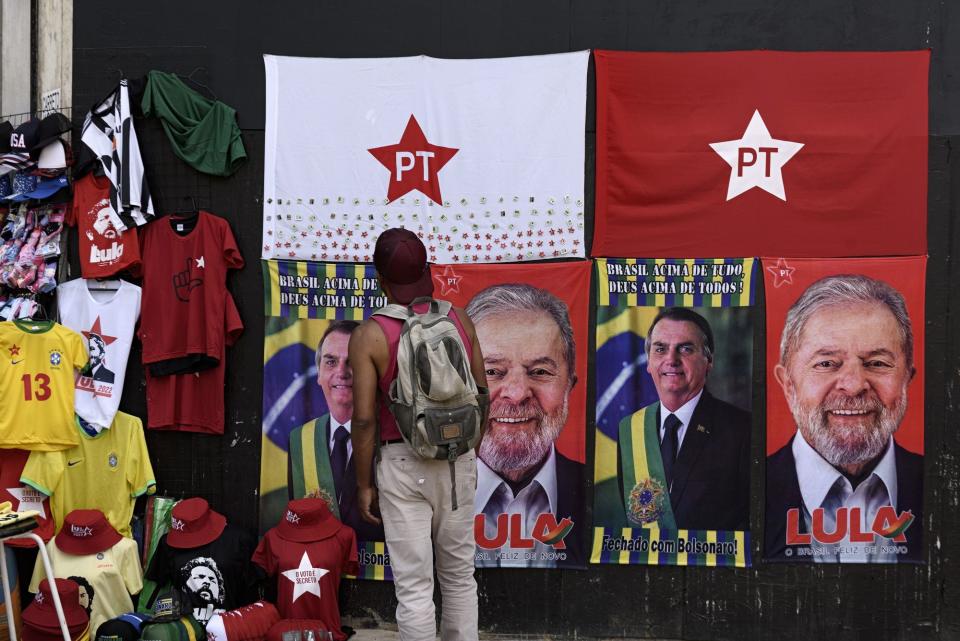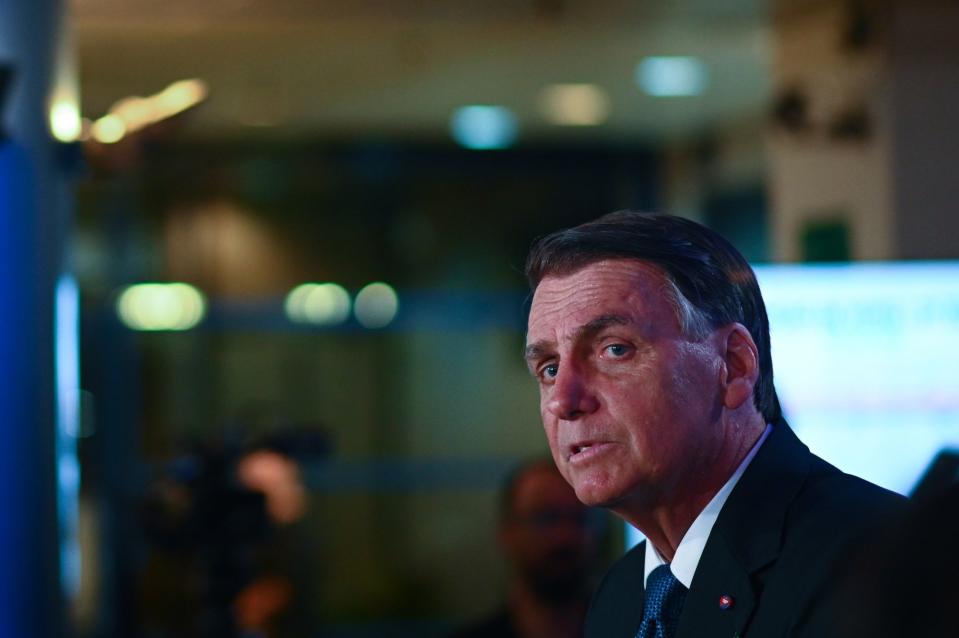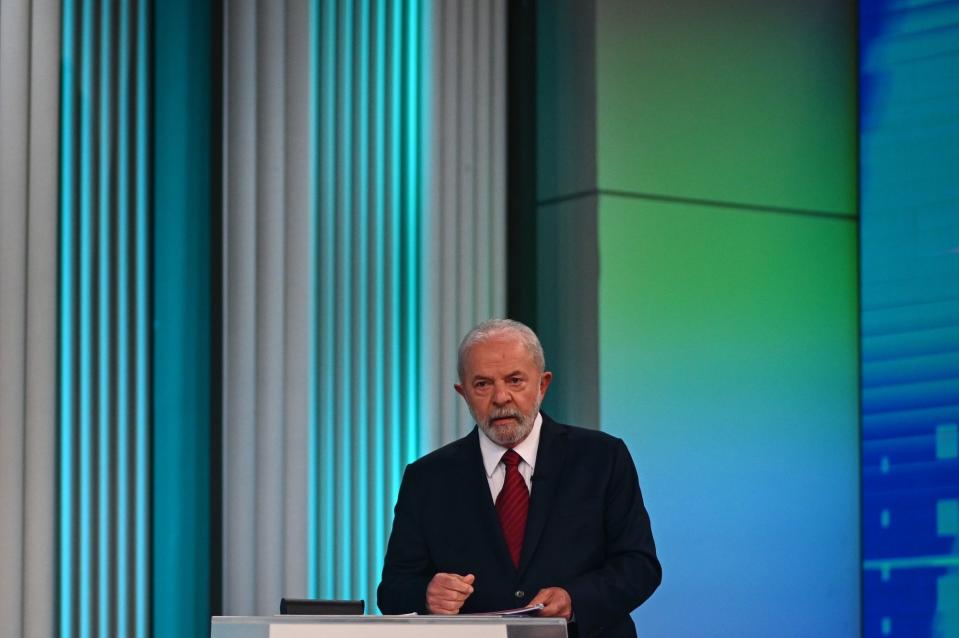Bolsonaro, Lula’s Final Showdown Unlikely to Change Brazil Race
- Oops!Something went wrong.Please try again later.
- Oops!Something went wrong.Please try again later.
(Bloomberg) -- Brazil’s Jair Bolsonaro and Luiz Inacio Lula da Silva traded barbs and accusations in a final debate that’s unlikely to be a game changer before Brazil’s Sunday runoff election.
Most Read from Bloomberg
Lula Edges Out Bolsonaro to Win the Presidency of Divided Brazil
Musk Posts Then Deletes Tweet Spreading Conspiracy Theory on Pelosi Attack
Seoul Crowd Crush Leaves Over 150 Dead at Halloween Festivities
Putin Stirs European Worry on Home Appliance Imports Stripped for Arms
The meeting, hosted by Globo TV in Rio de Janeiro on Friday night, was the last chance for the candidates to reach millions of Brazilians before the vote. While polls show more than 90% of people have already made up their minds, any misstep could have an impact on those who are torn between two options they dislike.
Bolsonaro, who’s lagging Lula by about 6 percentage points in major opinion polls, started the discussion promising to increase the minimum wage to 1,400 reais ($264) if re-elected. It was a strategy to dispel fears that salaries would no longer be adjusted by the inflation rate, following poorly-timed remarks from Economy Minister Paulo Guedes about the subject that were met with ample backlash.
The leftist leader seized on the theme, saying he increased the minimum wage above inflation during his two terms in office, and asking why Bolsonaro hasn’t done the same.
The candidates then exchanged accusations of corruption and called each other “liar” several times. Lula spent most of the time trying to project calm and control, frequently walking back to his pulpit for a sip of water, calling Bolsonaro “unhinged” whenever the incumbent made more aggressive attacks.
His strategy was in line with advice from marketing strategists who wanted the former president’s performance to reflect his lead in opinion polls. Bolsonaro’s goal, on the other hand, was to tease and misdirect Lula, according to people close to the candidates who asked for anonymity to discuss campaign plans.
Early polling seemed to give Lula the advantage. Monitoring done by Quaest showed Bolsonaro received 64% of negative mentions on social media during the debate. Lula got 49%.
Read More: Bolsonaro, Lula Retool Campaign Game Plans on Eve of Brazil Vote
Lula, who turned 77 on Thursday, spent most of the week getting ready from the showdown, after underperforming in the first televised confrontation of the second round, poorly managing his time and leaving corruption allegations made by his opponent unanswered.
The 67-year-old incumbent, who in the first round refused coaching for the debates, has been more open to advice from outside his close circle. In the first debate of the runoff round, he was instructed by an expert appointed by businessman Roberto Justus, known for hosting the Brazilian version of The Apprentice, according to two campaign advisers who spoke on condition of anonymity.
Allegations Against Radios
After a stronger-than-expected performance on Oct. 2, Bolsonaro seems to have stalled in polls. The president, who trailed Lula by about 6 million votes in the first round, was gaining momentum until his campaign was hurt by a series of blunders and incidents over the past few days, including a violent standoff between a former ally and police, which was brought up during the Friday debate.
In the final stretch of the race, the president has ratcheted up his rhetoric against Brazil’s electoral authority, alleging that radio stations gave preference to Lula’s campaign ads. Bolsonaro focused his attacks on Alexandre de Moraes, chief of the electoral court, starting yet another row with the Supreme Court justice who heads a wide-reaching investigation into disinformation.
The strategy was not a consensus within his campaign, which is divided on whether it may have been a shot in the foot, a staffer said. The top electoral court not only denied the request, but ordered an investigation into the president’s campaign for a possible attempt to disrupt the election.
Later on Friday, Communications Minister Fabio Faria, one of the first to claim the radios were biased, told Folha de S.Paulo newspaper he regretted making the allegations, which have been used by Bolsonaro’s supporters to call for an election delay. He said he rejects such an idea.
During the debate, Bolsonaro said the entire “system” is against him, including the electoral court, and repeated that his team had provided “proof” against radio stations.
Asked by a reporter after the debate whether he will accept the result of the election if defeated, he said: “There’s no doubt that whoever has more votes, wins. That’s democracy.”
(Recasts with details of debate starting in headline)
Most Read from Bloomberg Businessweek
When Netflix and HBO Turned on Each Other, They Forged a New Era of Television
Student Debt Headaches Return for Millions Despite Biden Relief
What the Alzheimer’s Drug Breakthrough Means for Other Diseases
One Way to Boost Profits and Reduce Inequality? Turn Workers Into Owners
Flights to Asia Are Finally Back, But Russia Airspace Bans Cause Onerous Detours
©2022 Bloomberg L.P.





